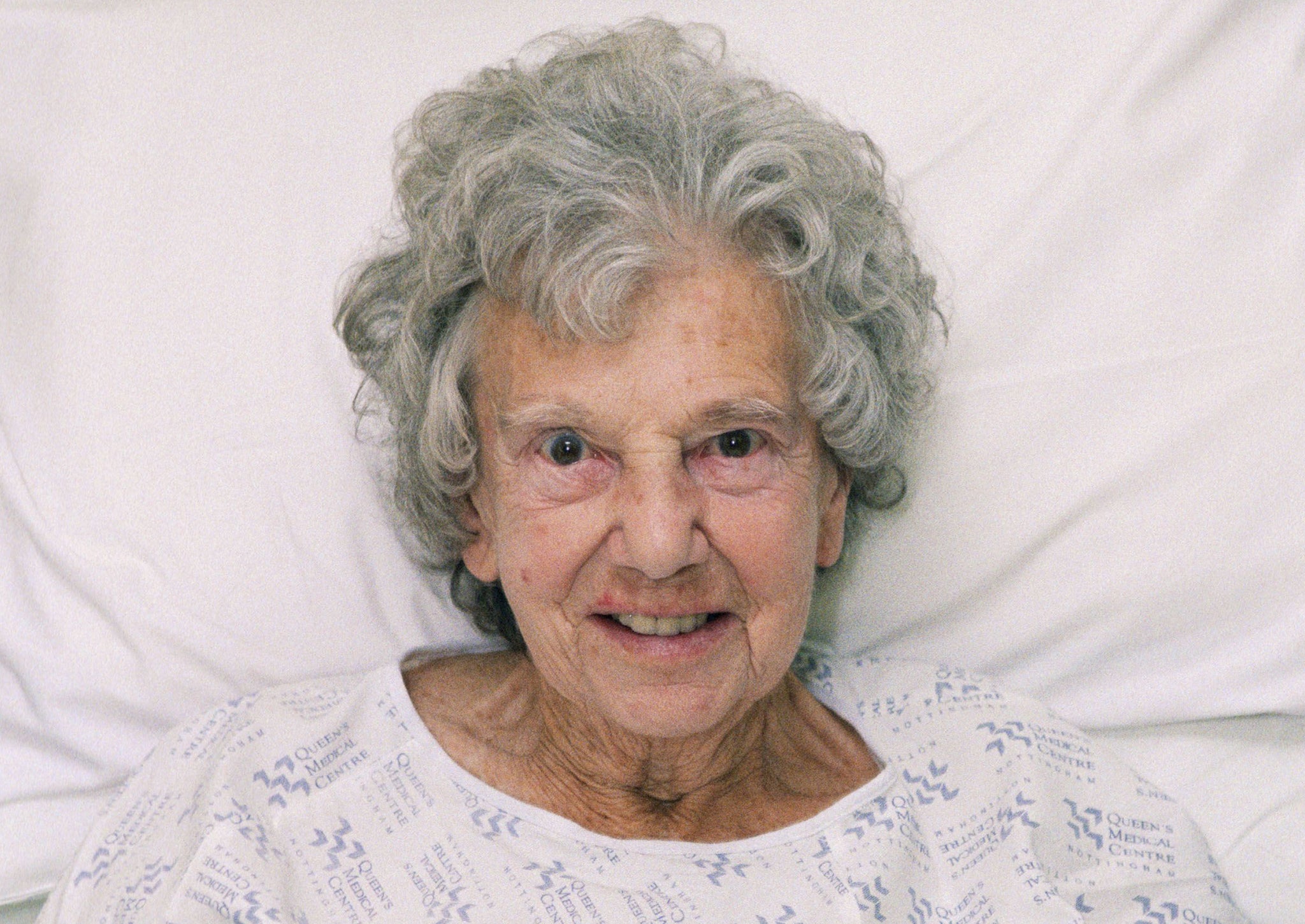It's obviously old people who are destroying the NHS, isn't it?
According to our Government's perfectly reasonable logic, OAPs are a luxury we cannot afford

Your support helps us to tell the story
From reproductive rights to climate change to Big Tech, The Independent is on the ground when the story is developing. Whether it's investigating the financials of Elon Musk's pro-Trump PAC or producing our latest documentary, 'The A Word', which shines a light on the American women fighting for reproductive rights, we know how important it is to parse out the facts from the messaging.
At such a critical moment in US history, we need reporters on the ground. Your donation allows us to keep sending journalists to speak to both sides of the story.
The Independent is trusted by Americans across the entire political spectrum. And unlike many other quality news outlets, we choose not to lock Americans out of our reporting and analysis with paywalls. We believe quality journalism should be available to everyone, paid for by those who can afford it.
Your support makes all the difference.As a rural dweller I can’t blame immigrants for the demise of my local NHS. There are not enough of them. Ours is a home-grown scourge, and one that is a lot more real. It's mostly found across rural hospitals, where bed-blockers in mobility scooters are grinding the NHS to a halt.
Of course, the elderly are the back bone of this country. They've worked hard all their lives. They've paid taxes and given the next generation life. You could even say their lives are still worth something. But, as George Osborne might say, in times of austerity we need to face facts. Old people are living longer and cost too much to maintain. Put simply, under our current system they're a luxury we cannot afford. This is where we are now.
A lot of the elderly live in the countryside, and it costs more to provide rural healthcare. The NHS in Scotland, Wales and Northern Ireland allocate a rural premium to help make sure these costs aren't too crippling. Yet bizarrely, no such premium is provided by NHS England. Campaigners say this results in a rural penalty, with the elderly being disproportionately disadvantaged. Under the prevailing logic however, we can’t possibly encourage old people to be dependent on the state, especially when it comes to things as frivilous as health care. Why don’t they just move into towns?
In rural areas, old people clog up A&E departments. They have falls, get very ill, then bed-block gratuitously. Their families complain that community hospitals are being shut so there aren’t enough beds for them. It's a fair point, but we should be stopping them going into hospital in the first place. A&E is very expensive, and can’t be there just because it saves lives. If the demand is too great, shut off the supply. In the same way that the poor cost too much so we remove their benefits, the rural elderly cost more when they’re sick so we must close down their hospitals.
The Royal College of Emergency Medicine has warned against the dangers of “centralising” rural A&Es, and studies show a direct correlation between the distance emergency patients travel to get hospital treatment and increased risk of death. Seeming to acknowledge this, my local trust has announced it is investing £1.4m in a mortuary. For as we all know, body disposal is cheaper than death prevention and, frankly, it’s all the NHS can afford.
The trouble with solving these problems is that old people who live in the country just don’t know what’s good for them. So it’s right that the highly paid experts are making tough decisions behind closed doors, free from the shackles of tedious public consultation. Thanks to the Health and Social Care Act, as long as you say it’s only temporary, NHS provision can be terminated without any public consultation whatsoever.
What the experts seem to be saying is that the rural elderly are their own worst enemy. Of course, this is a very reasonable stance. Take Shropshire, one of the most rural counties in the country, with a higher than average elderly population. Last year, health bosses responded to repeated failure to meet ambulance response time targets by opting out of them altogether. Recently, an 80-year-old woman had a heart attack in the middle of a street in a rural town. The air ambulance couldn’t land due to bad weather (it was drizzling), the first responder was on holiday and the defibrillator couldn’t be used because the ground was damp. It took two hours for her to reach hospital. Miraculously, she survived.
Local campaigners jumped on this as evidence that the current emergency health provision is already dangerously inadequate, and lambasted plans to shut an A&E as unconscionable. But they’re missing the point. What was an 80-year-old doing out of the house in the first place? Her reckless, selfish actions (renewing her library book and stocking up on Jammy dodgers), diverted vital NHS resources away from more deserving, economically active recipients. Her life is just one of the luxuries that the Government has made clear we can't afford.
Under this logic, if the NHS is to survive another winter, old people must stop abusing the system. If you’re over 60 and have chest pain, don’t call 999, 111 or your GP. Just go to the library and have a chat.
Join our commenting forum
Join thought-provoking conversations, follow other Independent readers and see their replies
Comments